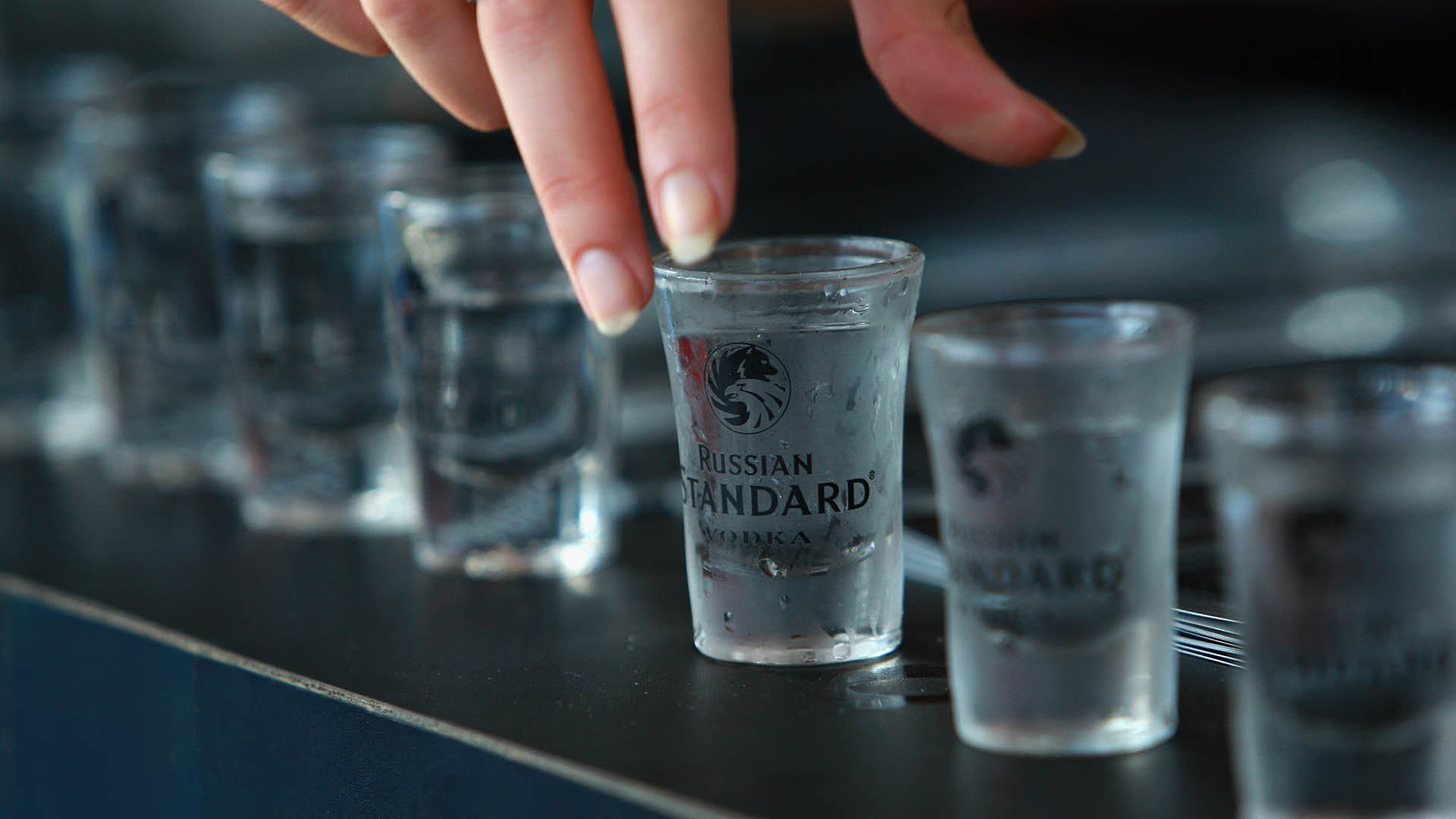Russian Booze Consumption Plummets, Rewrite Your Jokes Accordingly
Russians' national penchant for vodka and booze of all kinds is legendary, the stuff of punch lines and sketch comedy bits. But we collectively may have to retool our tired one-liners given new evidence that Russians are drinking less—dramatically less.
A new World Health Organization report shows Russian alcohol consumption dropped 43% between 2003 and 2016, enough to cause a measurable uptick in overall Russian life expectancy. In 2018, life expectancy reached its historic peak in Russia, at 68 years for men and 78 years for women, thanks to "pronounced" reductions in deaths related to alcohol consumption. According to the report, prior to the early part of this century, epidemiological evidence showed one in every two Russian men of working age would die prematurely because of alcohol.
So why the drop? Government restrictions on alcohol purchases. The report suggests other nations could learn from the Russian example, attributing the drop in drinking to "adequate pricing policies and the reduction of alcohol availability." In the early 2000s, Russia reorganized its alcohol industry, creating a state-owned distillery and cracking down on unlicensed alcohol producers. Beginning around 2011, the state also increased alcohol excise taxes, raising the minimum unit price for vodka and other spirits, and reduced the availability of retailed alcohol by preventing spirits from being sold in vending machines and in stores at certain late-night hours.
While the increased regulation and higher prices may frustrate Russian consumers, the report notes "government monopolies on production and on off-premise retail sales of alcoholic beverages are considered to be one of the most effective measures to control and reduce alcohol consumption and alcohol-attributable harm." The findings are being hailed as a model for other countries in the WHO's European Region, who are urged to implement some of these measures, especially a minimum unit price for certain types of alcohol. You probably don't need a 74-page report to tell you this, but—turns out when booze is more expensive, people drink less of it.
